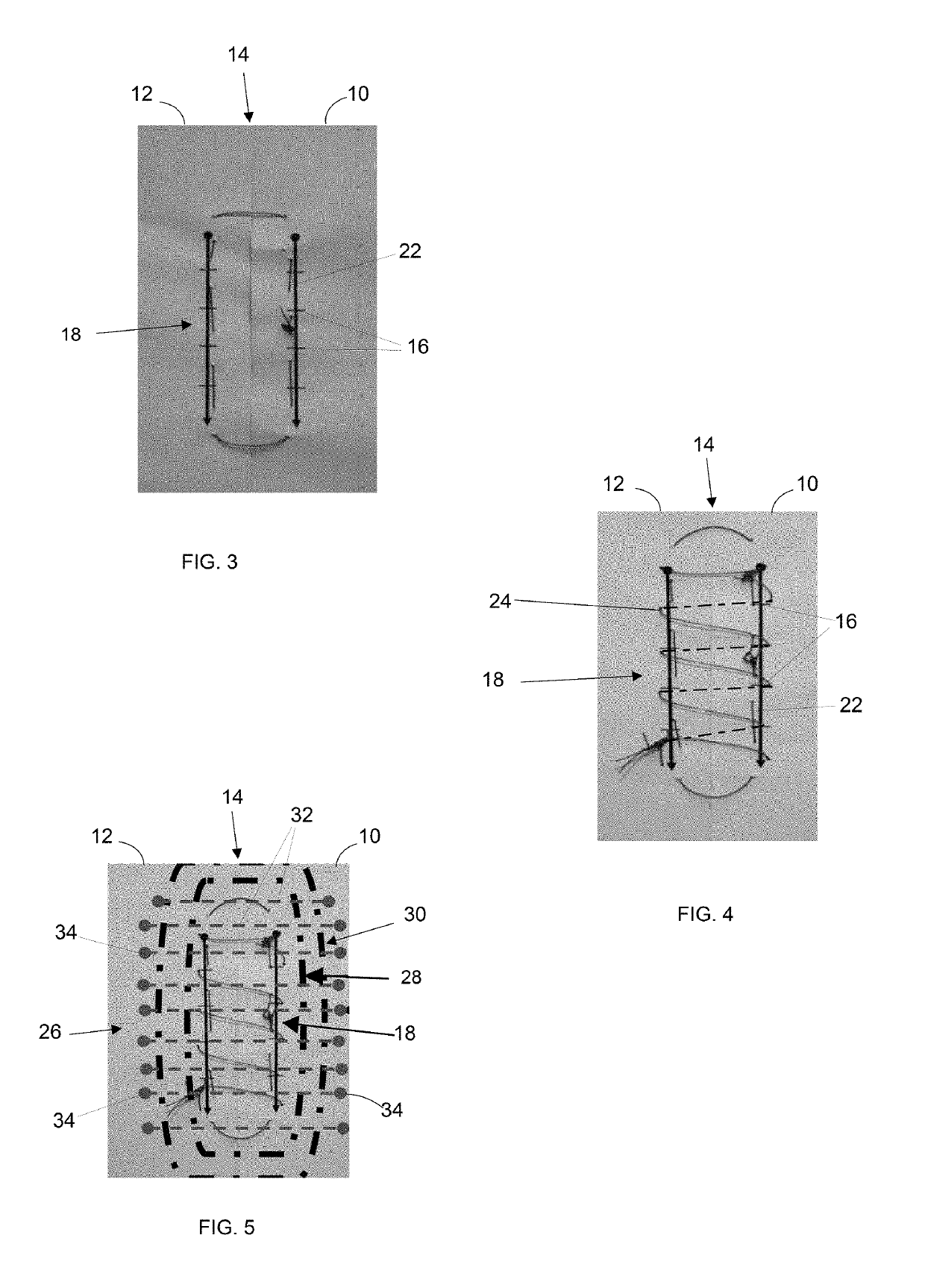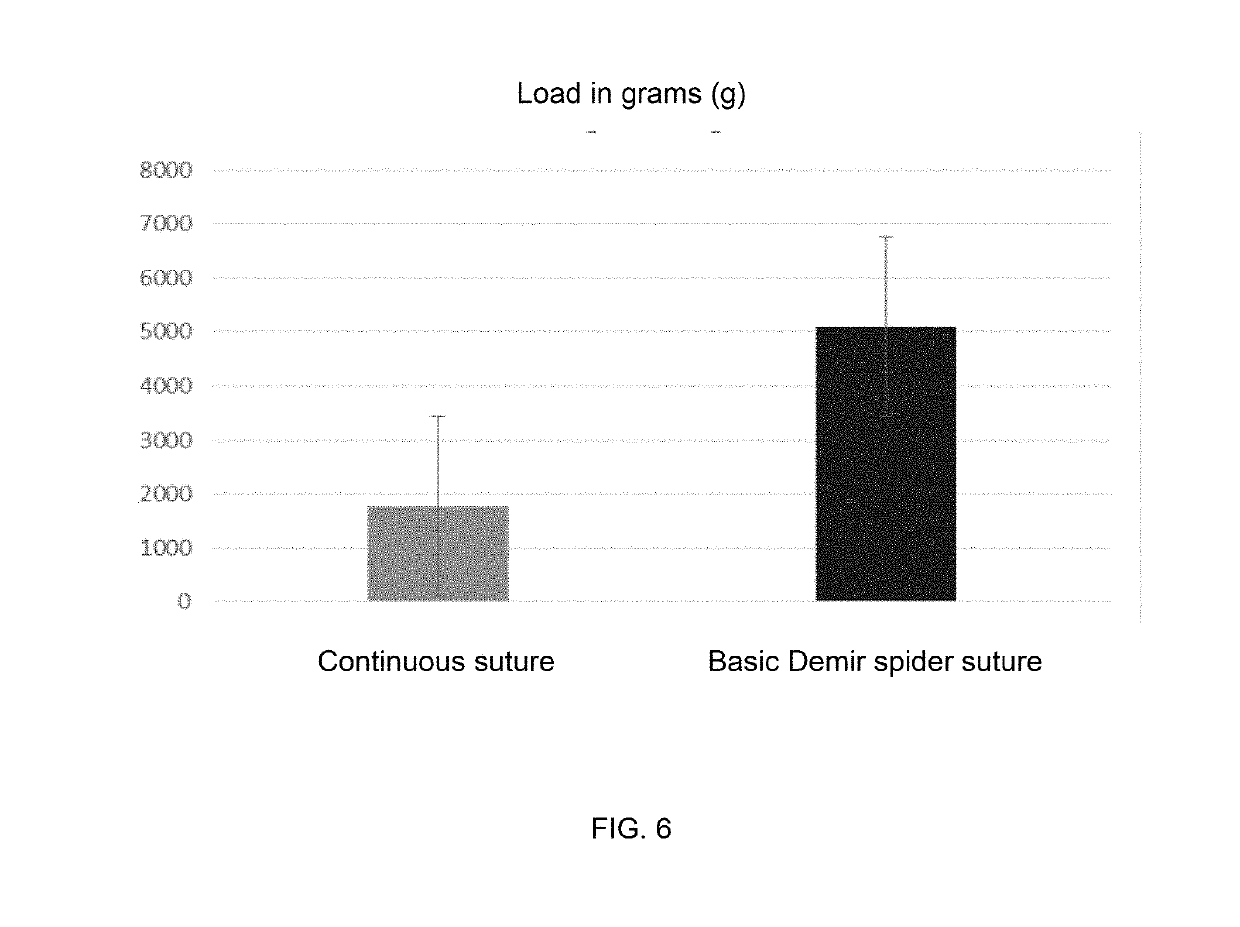Sutures and suturing techniques
a suture and suturing technology, applied in the field of suturing openings or wounds, can solve the problem of no major improvement in the incidence of incisional hernia after primary wound closure, and achieve the effect of reducing the incidence of incisional hernia
- Summary
- Abstract
- Description
- Claims
- Application Information
AI Technical Summary
Benefits of technology
Problems solved by technology
Method used
Image
Examples
Embodiment Construction
[0017]The invention relates to suturing techniques that use needles and suture threads to close openings and wounds defined by opposing edges of tissue of a living body. Preferred aspects of suturing techniques described herein include, but are not limited to, the ability to reduce the incidence of incisional hernia after laparotomy, in which case a subcutaneous surgical suture is often used to close a relatively large incision that was made in the fascia of the abdominal wall to gain access to the abdominal cavity.
[0018]The suturing techniques described below were developed as a result of thorough investigative analysis of cases of post laparotomy incisional herniae, from which it was concluded that, though suture threads are capable of retaining the fascia, herniae were caused by the adjacent tissue of the fascia slowly tearing at the point of maximum stress in the abdominal wall. As such, it was concluded that to avoid incisional herniae, there is a need for a suturing technique ...
PUM
 Login to View More
Login to View More Abstract
Description
Claims
Application Information
 Login to View More
Login to View More - R&D
- Intellectual Property
- Life Sciences
- Materials
- Tech Scout
- Unparalleled Data Quality
- Higher Quality Content
- 60% Fewer Hallucinations
Browse by: Latest US Patents, China's latest patents, Technical Efficacy Thesaurus, Application Domain, Technology Topic, Popular Technical Reports.
© 2025 PatSnap. All rights reserved.Legal|Privacy policy|Modern Slavery Act Transparency Statement|Sitemap|About US| Contact US: help@patsnap.com



